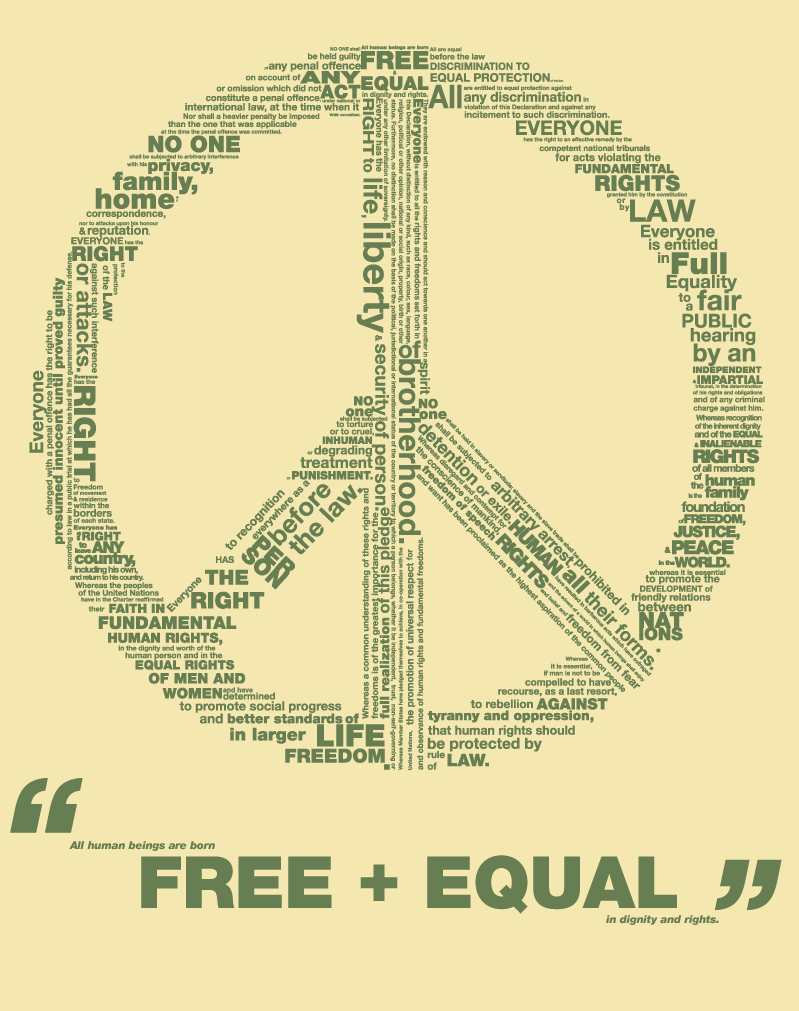Are you a post-graduate sick of scrolling through job adverts and seeing nothing that seems suited to you? Someone looking for a career change? Or merely someone fostering a curiosity for what jobs Europe and the world has to offer? In our newest series for Legs, E&M explores what professions Europe has to offer beyond what the eye can see.
Hi Sophie, what is it exactly that you do?
I work as Programme Officer of the Migration Programme of Justice and Peace. My role is to lead the migration programme and develop the programme strategically and practically. Part of my job is programme development. This means, I analyse the field, evaluate the developments, identify niches for action and reflect on these impacts for the migration program. In addition, there is also a lot of thinking about target groups, estimating where Justice and Peace can play a part and formulating its role.
Fundraising is also another big part of my job along with the implementation of our programmes, which is a very divers work. There is a European part of our programme which means lobby and advocacy, entailing a lot of research, connecting to European partners and writing reports, opinion articles etc. Next to the European part, there is of course the Dutch one as well which includes organizing Welkom Hier manifestations. This means more event management, but also linking up with partners, coalition building and bringing people together to cooperate for the settling and integration of refugees in the Netherlands.
What was your dream job when you were younger?
When I was really young, I wanted to become a vet. I love animals. However, it turned out that I am quite allergic to them and that I am not that good with bloody things. Not really helpful to become a vet! Then my dream job turned out to be, and actually still is, to become the first female secretary general of the UN. I still have a chance, but I have to hurry up! To be honest, I have seen the advantages of the UN, but also its shortcomings. Change happens on the ground, bottom-up, from grassroots level. That is where I want to be. So yeah, becoming the boss of the UN is still, jokingly, my dream, but the romantic part of it has faded a lot. And I think I have become too much of an activist for the job.
Was there a specific moment when you felt that you wanted your career to take a different direction?
In the first years of university I figured that the profession of a diplomat was something for me. An internship in Jordan at the Dutch Embassy proved I was quite wrong. I loved the internship and had a great time, but the strict bureaucratic setting did not suit me. This internship was too formative for me. Since then, I discovered my passion for human rights, specifically women’s rights, and grassroots work which has guided me and my work – along with a passion for the politics in the Middle East.

I developed the direction I was going into along the way. I was always jealous of my brother and sister who knew exactly what they wanted to do. I was the opposite. Something international, see the world and meet people – that was the closest I came to defining what I wanted to do.
Internships were actually what gave me insight into what I liked, what I am good at and where my passion is. I am a big believer in trial and error, they give you experience and eventually show you your way. Even if it does not show instantly, each single experience is an added value. Another aspect I believe in for finding your way is discipline. If you do not know what you want to do, it is easy to lay back, but you have to actively find out what you want and what you are good at. It will not just come to you automatically. And once you know it, really go for it. Put your most to it, it may be hard, but one way or another, you will get there. You just need to be disciplined and active.
Do you find you had a conventional career path?
Yes, I kind of had a conventional career path. But I am not that afraid of change and that is an element that I always seek. I like to keep on pushing myself to things that are new. So, for instance, the switch from women’s peace activism to refugee rights might be a bit uncommon, but the insights I gained in these fields are really an added value. It keeps you from developing a tunnel vision.
What do you like most about what you do?
What I really like about my job is that I am dealing with world issues, and in a very small way I am part of these issues. That I am somehow contributing to achieve a little positive change in the world, in the lives of others, and eventually my own of course. The diversity of people I am interacting with is great.
“The impact of my work is dependent on so many macro, meso and micro factors, that it is sometimes hard to see the results of what you do.”
What is the biggest challenge about your profession?
What I like about my work and my biggest challenge are actually similar. Dealing with issues of peace, conflict and world politics is big. It sometimes gives me a feeling of disempowerment. The dynamics we are dealing with are very macro, intangible and very hard to influence. The impact of my work is dependent on so many macro, meso and micro factors, that it is sometimes hard to see the results of what you do. I am very motivated by results, but sometimes it is a bit difficult to see them if you place them in the wider international politics dynamics.
For instance, my heart sinks every time I hear about a boat of migrants perished in the Mediterranean. I get really upset and cannot believe how Europe allows this. And despite working on the issue, I am not able to prevent this from happening. However, working on local level acceptance of refugees, a welcoming society, gives me joy, especially when I see the small changes we can make in other’s lives.
Are there any inspiring figures in your field that motivated you?
As inspiring figures I count a lot of active nonviolence leaders, people working on the ground and trying to change their community’s attitude to human rights and social justice, despite the heavy pressures these people are personally facing. Women peace activists in the Philippines or Colombia for instance. I sometimes wonder whether I could do that, given my safety doing human rights work in the Netherlands. I feel privileged to sometimes talk to them and feel inspired by them. And more generally, women who have defied gender norms and choose their own life path – like Gertrude Bell.
What would you say to someone thinking of taking this career path?
My advice for people starting in the human rights field: it requires persistence and discipline to follow this path. And only get involved if you have a passion for human rights issues. The passion is what you need, because the field can be very disheartening sometimes. Be flexible and, from an activist point of view, you need to realise that it is not about you – it is about partnership and the collective to make human rights and social justice work.
About the Interviewee
 Sophie Schellens is Programme Officer Migration at Justice and Peace Nederland in Den Haag, Netherlands. Prior to that she was working for the Women Peacemakers Program where she focused on the documentation and dissemination of powerful stories of women and men peace activists working for gender-sensitive peace building. She obtained two Masters, one in Comparative and International Politics from the Catholic University of Leuven, Belgium, and the second in Conflict and Development from Ghent University, Belgium
Sophie Schellens is Programme Officer Migration at Justice and Peace Nederland in Den Haag, Netherlands. Prior to that she was working for the Women Peacemakers Program where she focused on the documentation and dissemination of powerful stories of women and men peace activists working for gender-sensitive peace building. She obtained two Masters, one in Comparative and International Politics from the Catholic University of Leuven, Belgium, and the second in Conflict and Development from Ghent University, Belgium










